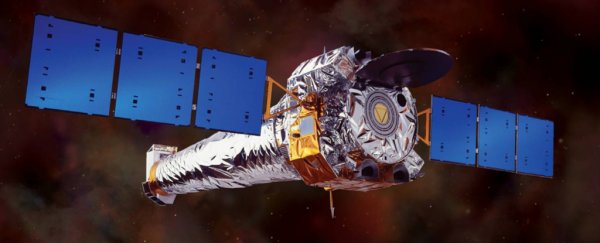It's been a big week for NASA. First the much-loved Hubble Space Telescope entered "safe mode" after one of the gyroscopes that points it in the right direction failed.
Then there was a mid-flight failure of a Russian Soyuz rocket on Thursday morning, resulting in the (safe!) emergency landing of cosmonaut Alexey Ovchinin and astronaut Nick Hague - something that's left the space organisation without a way to get people into space, and the crew of the ISS "marooned"
Now the Chandra X-ray Observatory is having issues.
The observatory, which has been showing us the Universe in incredible detail since 1999, entered "safe mode" on Wednesday October 10, NASA announced in a press release.
"Safe mode" is basically a protective configuration that keeps the telescope stable until ground control can work out what's going on and get the mission back on track.
NASA isn't sure what's caused the problem with Chandra, but it suspects it might also involve a gyroscope.
"All systems functioned as expected and the scientific instruments are safe," NASA wrote in an update on October 12. "The cause of the safe mode transition (possibly involving a gyroscope) is under investigation, and we will post more information when it becomes available."
Gyroscopes are important because they help spacecraft stay oriented properly.
To add to NASA's woes, its Mars rover Opportunity since June 10 when a dust storm kept its solar panels from getting sunlight.
Its planet-hunting telescope Kepler is almost out of fuel, as is the Dawn spacecraft.
But it's not all bad news, NASA engineers might be able to fix the gyroscopes of Hubble and potentially Chandra remotely.
Also, all of the fore-mentioned missions have already exceeded their original goals and lasted far longer than anyone expected. Any science we get now is a bonus.
"Chandra is 19 years old, which is well beyond the original design lifetime of 5 years," NASA explained.
"In 2001, NASA extended its lifetime to 10 years. It is now well into its extended mission and is expected to continue carrying out forefront science for many years to come."
We're wishing Chandra a speedy recovery.
